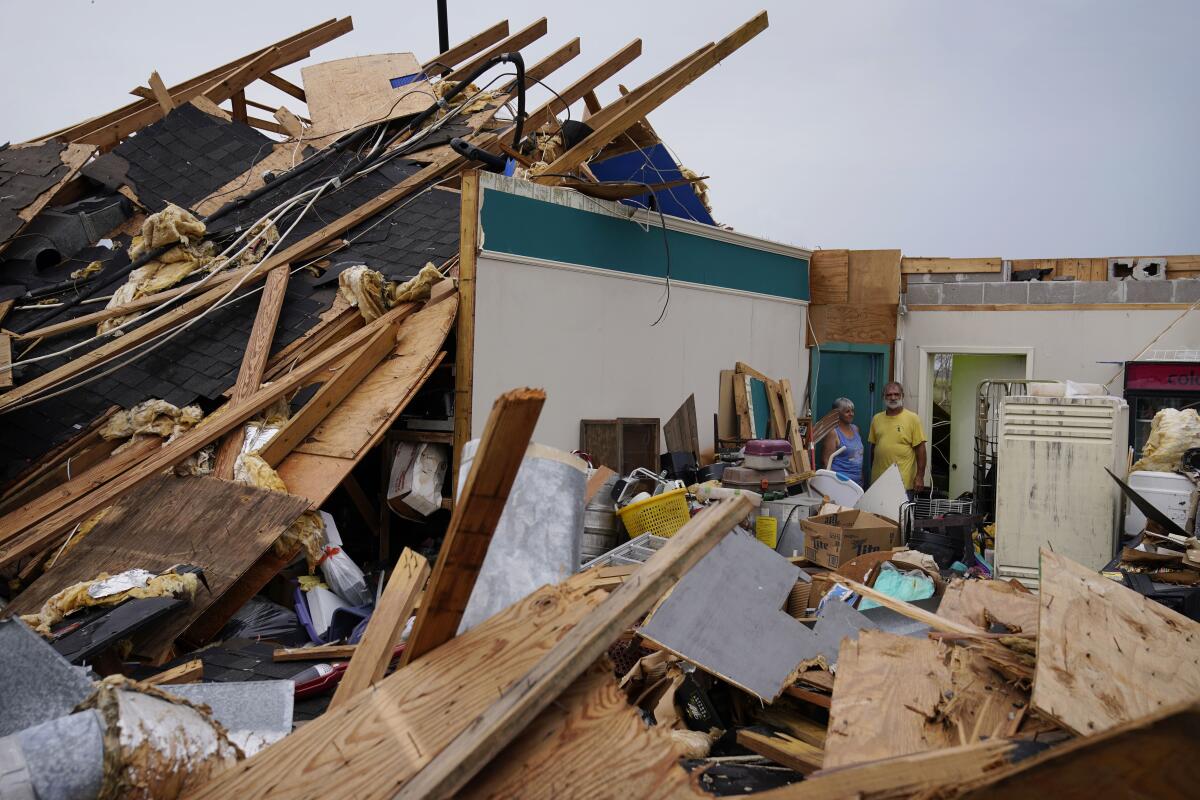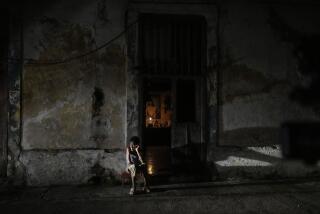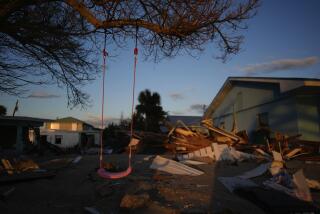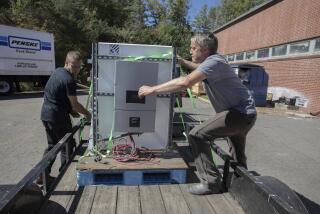Hurricane Ida nine days later: 430,000 still without power

NEW ORLEANS — Hundreds of thousands of homes and businesses in Louisiana, most of them outside New Orleans, still didn’t have power Tuesday, and more than half of the gas stations in two major cities were without fuel nine days after Hurricane Ida slammed into the state, splintering homes and toppling electric lines.
There were also persistent signs of recovery, however, as the total number of people without electricity has fallen from more than a million at its peak, while hundreds of thousands of people have had their water restored. AT&T, which suffered widespread cellphone outages after the storm, reported that its wireless network now is operating normally in Louisiana.
As residents struggled to recover, state organizations, church groups and volunteers labored for a ninth day to hand out food, water and other supplies to those left without resources when their homes were destroyed or left uninhabitable.
The disparity in power restoration between New Orleans, where nearly three-quarters of the city had electricity again, and other communities where almost all residents were still in the dark prompted frustration and finger-pointing.
State Rep. Tanner Magee, the House’s second-ranking Republican who lives in the devastated city of Houma in Terrebonne Parish, said he’s convinced his region is being shortchanged in favor of New Orleans.
“It’s very infuriating to me,” Magee said.
Though water was running again in his area, most hospitals in the region remained shuttered, and the parish was in desperate need of temporary shelter for first responders and others vital to the rebuilding effort, he said.
Fuel shortages also persisted across hard-hit areas of the state. More than 50% of gas stations in New Orleans and Baton Rouge remained without gasoline Tuesday morning, according to GasBuddy.com.
Magee said lines to get gasoline to power up generators and vehicles in his area involve hourslong waits.
The power situation has improved greatly since Ida first hit. In the first hours after the storm, nearly 1.1 million customers were in the dark — including all of New Orleans. With the help of tens of thousands of workers from power companies in numerous states, the state’s biggest energy provider, Entergy, has been able to slowly bring electricity back, leaving only 19% of its customers in the region without power as of Tuesday.
For residents in the state’s four hardest-hit parishes in southeastern Louisiana, however, that number is little comfort. Fully 98% of those residents are still without power more than a week after Ida slammed onshore with 150 mph winds on Aug. 29.
Power probably won’t be widely restored to St. John the Baptist Parish until Sept. 17 and until Sept. 29 to Lafourche, St. Charles and Terrebonne parishes, Entergy said Monday. The parishes are home to about 300,000 people.
In St. John the Baptist, power has been restored to “a small pocket” of customers in the hard-hit town of LaPlace, Entergy Louisiana President and CEO Phillip May said in a Tuesday conference call. He didn’t say how many now have power there but promised the number would rise as crews worked their way into the community.
In contrast, nearly all power has been restored in the capital of Baton Rouge, and only 27% of homes and businesses are still suffering outages in New Orleans. Entergy said it expected to have the vast majority of New Orleans brought online by Wednesday. Once areas such as New Orleans have their power restored, Entergy will move its crews into communities south and west of the city that saw more widespread damage, May said.
As Entergy worked to get the lights turned on everywhere, the Louisiana Department of Health reported that the number of people without water had fallen from a peak of 850,000 to 58,000, though about 850,000 people were being advised to boil their water for safety. Grocery stores reopened in some places.
Ida killed at least 13 people in Louisiana, many of them in the storm’s aftermath. Its remnants also brought historic flooding, record rains and tornados from Virginia to Massachusetts, killing at least 50 more people.
Seven nursing home residents in Louisiana died after being evacuated during Hurricane Ida to a warehouse in the town of Independence where conditions were later determined to be unhealthy and unsafe, according to state health officials who said they’ve launched an investigation into the facility.
In New Orleans, hundreds of seniors were evacuated from apartments after the electricity went out and some were trapped in wheelchairs on the top floors of their multi-story apartment complexes. The managers of some of the homes for seniors evacuated out of state without making sure the residents would be safe after the storm, New Orleans City Council member Kristin Palmer said Monday.
Deslatte reported from Baton Rouge, La. Associated Press writers Rebecca Santana in New Orleans; Jeff Martin in Marietta, Ga; Sudhin Thanawala in Atlanta; and Lisa J. Adams Wagner in Evans, Ga., contributed to this report.
More to Read
Sign up for Essential California
The most important California stories and recommendations in your inbox every morning.
You may occasionally receive promotional content from the Los Angeles Times.









